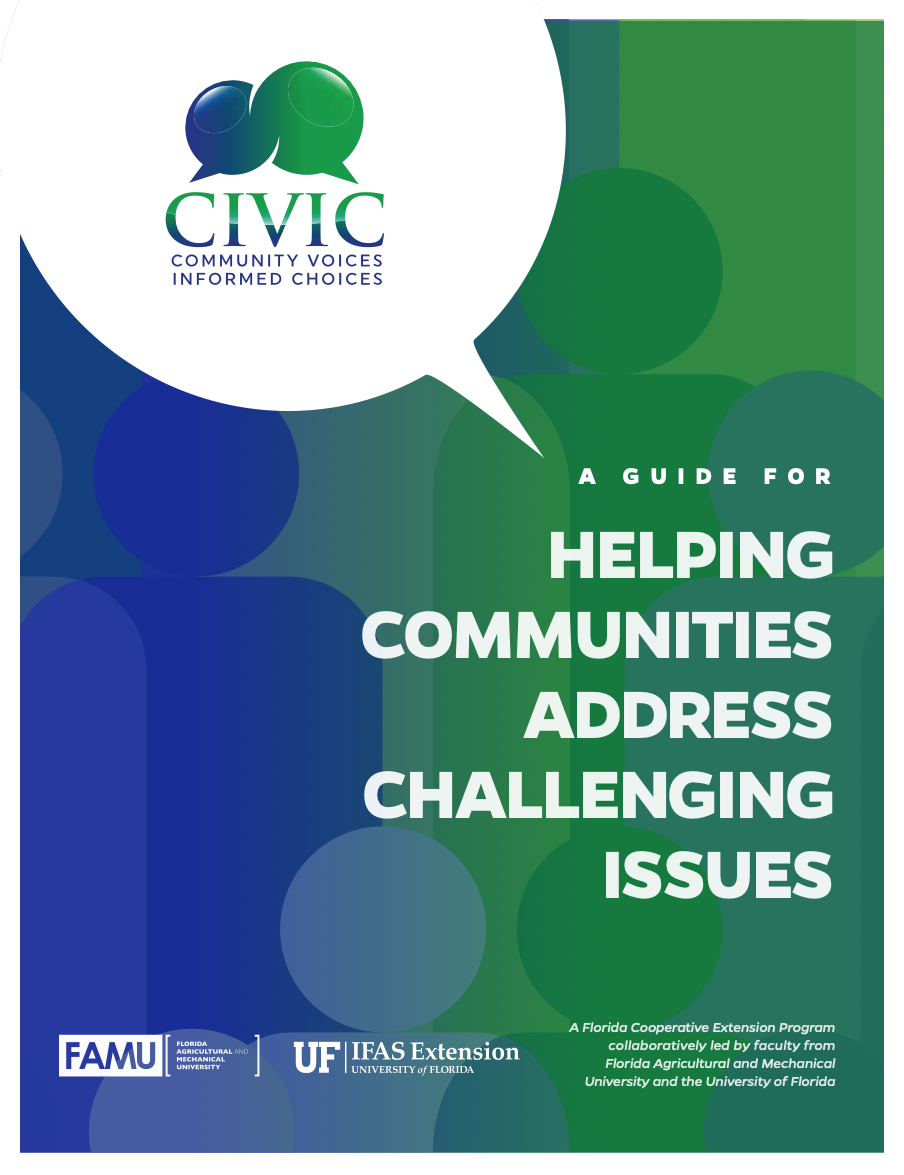What Is the CIVIC Guide?
CIVIC is a community‐based program that helps people come together to explore complex, often contentious, issues. The CIVIC Guide and Evaluation Tool from the University of Florida’s Community Voices, Informed Choices (CIVIC) program is a powerful resource for communities, extension professionals, and civic leaders. By combining trusted information, dialogic practices, and deliberative processes, it aims to foster:
- Deeper understanding of issues
- Hearing and respecting multiple perspectives
- Identifying actions that lead to community solutions
In essence, CIVIC builds on decades of work done by the National Issues Forum Institute and others, integrating the strengths of these deliberative traditions with the outreach and neutral information role of university extension services.
What’s in the Guide
The CIVIC Guide is designed as a practical toolkit—for extension faculty, community leaders, and others—to plan, conduct, and evaluate deliberative community engagement initiatives.
Key features include:
- Guidance on collecting community concerns and performing community assessments
- Steps for adapting or developing an issue guide tailored to local contexts
- Strategies for moderating deliberative discussions so that multiple perspectives are heard respectfully
- An evaluation component: methods and tools to assess both process and impact
It also includes versions or sections specifically targeted to different audiences—such as extension professionals and community leaders.
Why It Matters for Civic & Deliberative Practice
For those of us working in civic engagement and public deliberation, the CIVIC Guide offers several valuable strengths:
- Nonpartisan, trusted content – The Guide ensures that discussions are anchored by accurate information, helping to counter misinformation or misunderstanding.
- Adaptability – Not every community is the same. The Guide provides tools to adapt content and process to the local culture, issue, and audience.
- Focus on evaluation – By building in evaluation from the start, CIVIC allows practitioners to see what works, what doesn’t, and to iterate for improvement.
- Bridging extension and civic engagement – This model shows how academic and extension institutions can partner with communities in deliberative work, offering legitimacy, resources, and facilitation.


